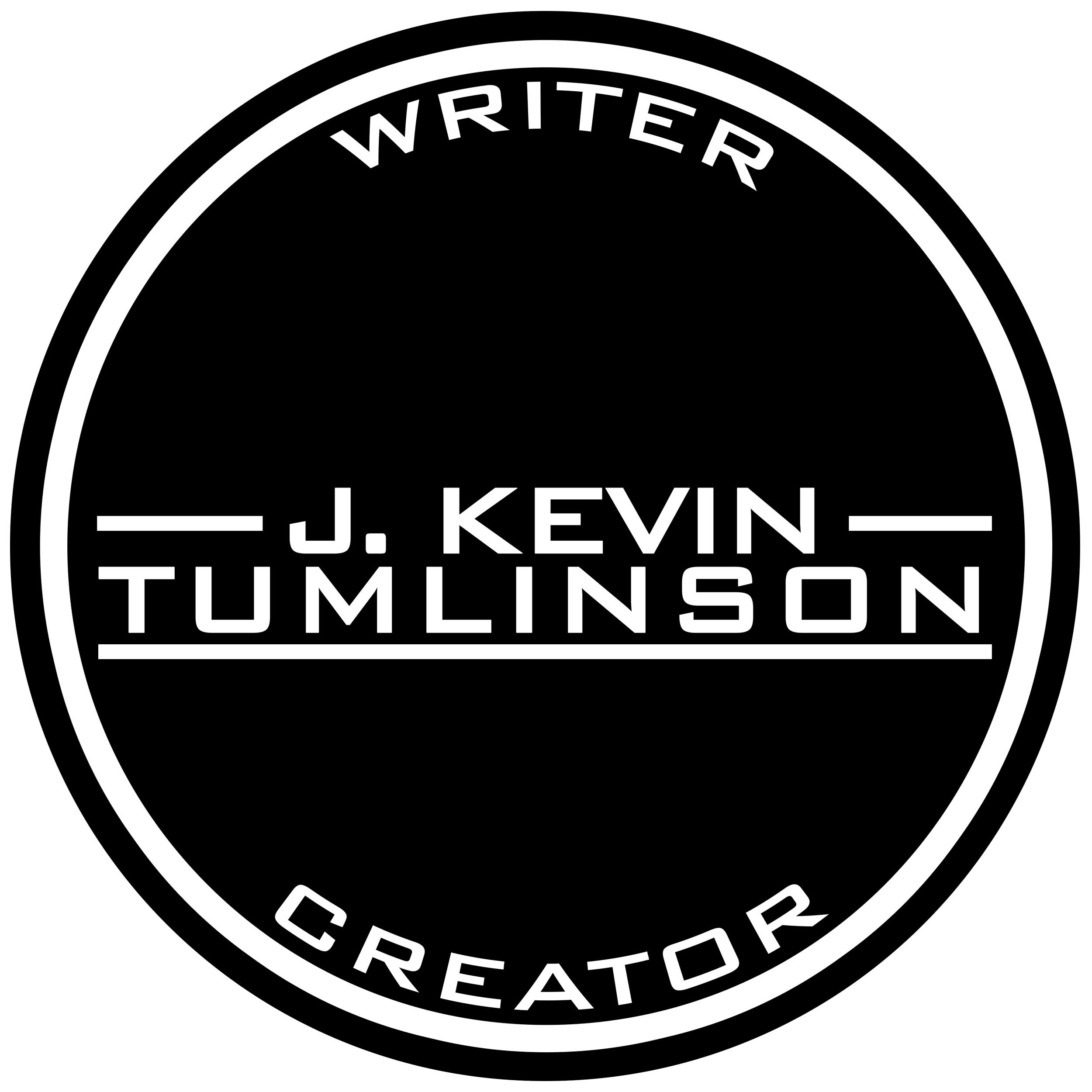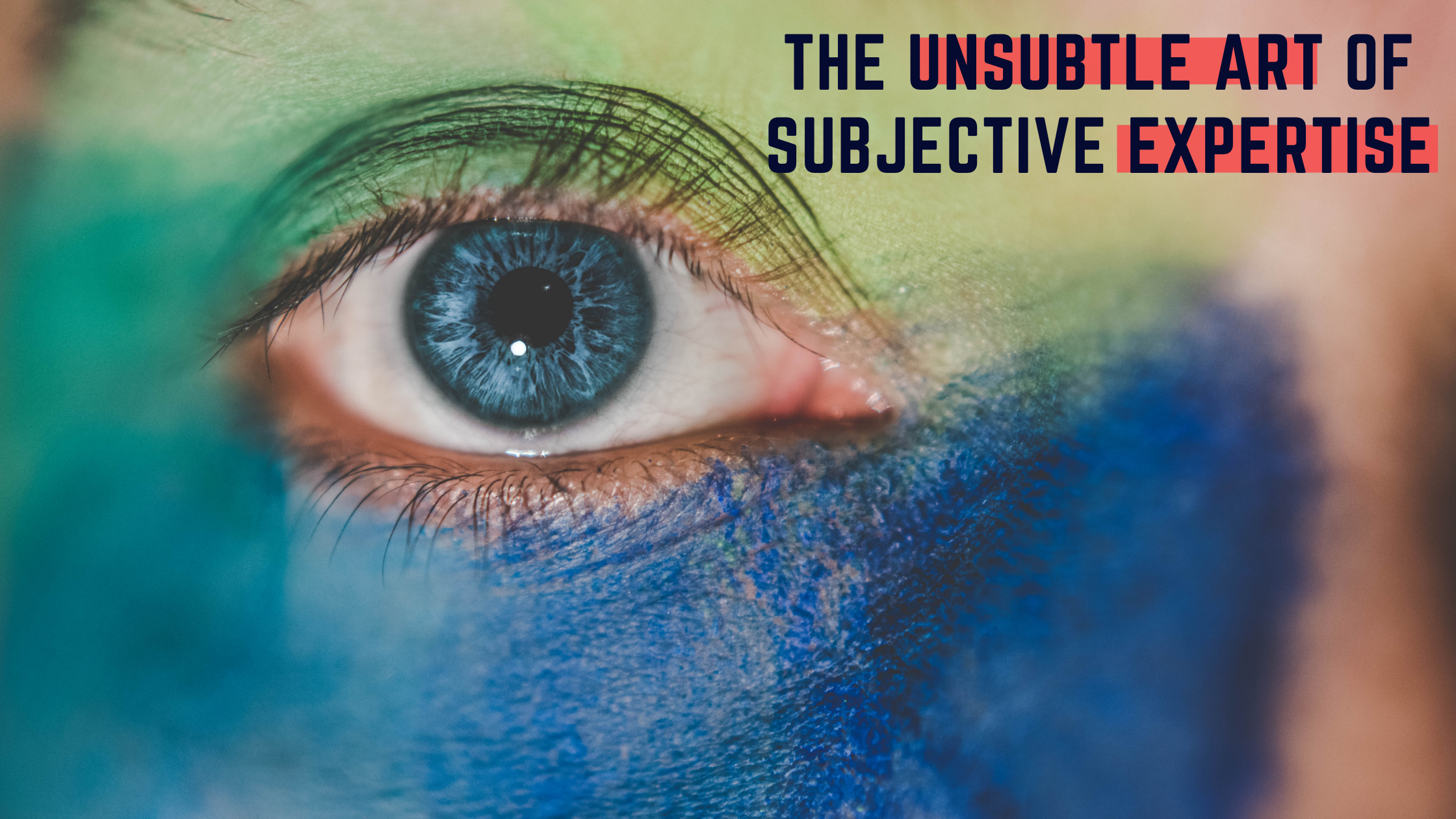This morning I posted a tweet that I think sums up something I’ve been pondering:
I just commented on a tweet and said "my discipline is language." I think that's not quite true. My discipline is "humanity," and language is just the best tool I've found for understanding my subject.
— ©️ 𝙺𝚎𝚟𝚒𝚗 𝚃𝚞𝚖𝚕𝚒𝚗𝚜𝚘𝚗 | Author (@kevintumlinson) March 12, 2021
It’s a pseudo sort of answer to my constant question, “Who am I?”
To that question, there are a lot of ways you can answer, and each is a choice you make. I could define who I am by what I do, which is a pretty common method in the Western world—and thus I am a novelist, I am a marketer, I am a writer and philosopher, a student of humanity.
That has a nice heft to it, but it isn’t a complete picture.
I can define myself by my roles—I am a husband, I am a US citizen, I am a Christian. More paint for the house, but not the house itself.
See, this is why this kind of thing is so tricky. Because ultimately, no matter how I fill in the blank after “I am _____,” it isn’t enough. It isn’t complete.
And now I think I know why.
In the tweet above I described “my discipline” as “humanity.” There’s a bit to unpack there. For a start, what do I mean by “my discipline?”
Every one of us has some conglomeration of focus that preoccupies our days. Beyond the work we do, beyond our responsibilities and the requirements clinging to our lives, there is something within us that we consider “ours.” Our domain. Our field. Our expertise.
Our level of expertise in that domain may be subject to scrutiny and questioning. Saying, “I’m an expert in humanity” is pretty definitive, but ultimately it’s more subjective than objective. Because, frankly, the concept of “expertise” is itself subjective.
I once posted on Facebook something I’d read in Tim Ferriss’s book, The 4-Hour Workweek. To paraphrase, Ferriss said that if you were to read the top three books by the top three authorities on any subject, you could effectively be an expert on that subject.
I like this idea because of its neat packaging. To me it makes a lot of logical sense—of course you can become an expert—relatively speaking—with the three leading ends on a topic as your instructors.
And that “relatively speaking” that was kind of a throwaway line, that’s important. Because the idea is that by reading those books, you become an expert relative to others who have no knowledge of the subject at all, or who have only limited knowledge. You studied the subject, and that makes you more of an expert than someone who didn’t. It makes sense. It’s logical. It’s the kind of philosophy I didn’t even realize I’d lived by until Ferriss named it for me.
Brilliant.
I wasn’t prepared for the backlash that Facebook post would bring.
A… well, let’s call him a “rival”… on the platform took issue with this. His position was that this was exactly the problem with the world, and with the United States in particular. The assumption of expertise, he claimed, was causing chaos, confusion, and rebellion. It caused people to question science, to doubt the media, to distrust the government.
I can hardly argue with this, since it’s true. I can only argue the point of whether these things are, or are not, “bad things.”
I hold they’re not. Questioning science is an out-and-out necessity, and is in fact the point of science in the first place. Blindingly accepting something without testing it is ignorance and arrogance—science is the discipline of proving ideas false, until you can no longer find a way to do so. Until later.
Blindly trusting media and government… well… to quote Joe Biden, “C’mon, man.”
In my rival’s world, I gathered, expertise was something that must be vetted and bestowed, not something you could claim. You could not be an expert unless the gatekeepers declared it so.
Except… who are the gatekeepers?
Is it academia? A body of learned scholars who have (get this) read and studied the works of the accepted experts in the field, and now teach those concepts to others?
Is it government? A body of people elected to do the will of the people, but are famously biased toward party-line thinking?
Is it mainstream media? A body that has turned character assassination and ad hominem attacks into business as usual, and which relentlessly force-feeds fear down the gullets of the public in the name of keeping ad revenue flowing?
I have, as you may have noticed, opinions.
But my rival does have a very valid point, and I’d be an idiot not to consider it.
Expertise may be a subjective concept, but there is an element of public scrutiny and endowment involved. In no way do I believe that everyone must agree that someone is an expert before it can be so. But the recognition of expertise by some outside body is kind of a requirement.
Consider a court of law.
If one attorney in a case introduces someone and wants them to be accepted as an expert on a given topic, the opposing counsel has to agree to this stipulation, as does the judge. And in many cases, the called-upon expert may have no official credentials bestowed by academia or some governing authority on the subject—there may not even be official credentials for that field.
An example: In a case involving a car accident caused by a set of faulty lug nuts, the attorney for the Plaintiff may request that a local auto mechanic, with fifty years of experience, be proclaimed as an expert on the subject of lug nuts. If the judge and the attorney for the Defendant agree, then Joe Mechanic is now an official expert, whose insight is accepted and trusted by the court.
There was no degree earned, no board to approve him, no panel to which he needed to defend a dissertation on lug nut theory. His experience was simply subjectively great enough that a group of people agreed that he was an expert.
In this case, experience and demonstrable knowledge are the key factors. But is there a line? Is there an amount of experience required? Or a quantity of demonstrable knowledge?
If Joe had only 30 years of experience, would that be too little? What about 25? How about 10 years?
Where is the line between expert and non-expert?
It doesn’t exist, because the concept of expertise is entirely subjective.
Think about this: You probably weighed the “value” of Joe’s expertise with each set of numbers above. His 50 years of experience is long, and makes him worthy. But 30 years… that’s less, so maybe his expertise is also smaller. And ten? That’s tiny. He’s nowhere near as experienced, so he he’s less of an expert.
That’s how our minds work. It comes down to the same underlying principle of comparative pricing—if there’s a bottle of wine for $50, that has to be better than the one for $10, but it’s probably not as good as the one for $750.
Is that wine better or worse? The answer can only be subjective. If you’re a wine connoisseur, you may find the $50 bottle to be far superior than the $10. But if you’re me, you probably aren’t much for wine anyway, and one tastes much like the other. Unless it’s truly bad, and/or unless I have something else to compare it to, I likely won’t know the difference.
Context matters.
But what if our expert Joe has spent his 10 years working hard to learn everything there is to know about lug nuts? What if, in his 10 years, he’s filed more than a dozen patents on lug nut design? What if he’s read every book, blog post, magazine article, and social media post that’s ever been written on the topic of lug nuts, and how to make them safer?
And let’s introduce Bob Mechanic, Joe’s father. Bob’s been a lug-nut guy for 50 years, but his experience is mostly twirling a wrench. He knows lug nuts. He knows what makes them tick. But his boy’s the one with the mad passion for the subject.
There’s a four-decade difference in experience between these to men, but the one with fewer years is the bigger expert, wouldn’t you agree? Joe’s experience has greater depth. The quality of his expertise matters more than the quantity. No one granted him this greater authority, he took it upon himself to acquire it.
And all of this makes him subjectively a greater expert, especially in comparison to someone who has to Google “lug nut.”
But I’ve strayed a little.
I started off talking about the ways in which we define ourselves. How do we determine who we really are?
Again, I think this is entirely a subjective field. Knowing who we are is too complicated to be objective. Subjective expertise is the only tool we have, but it’s also the best tool for the job.
That’s because so much of who we are as a species and as a culture is subjective.
I’ve been taking one of the Anthropology classes from The Great Courses, and I’ve really enjoyed it. And from it, I’m learning just how propoundly limited our knowledge of ourselves really is. We have studied ourselves for centuries, and more, and yet everything we “know” about ourselves comes down to educated guesses and working hypotheses. Theories get scrapped regularly as we uncover more hints and evidence about our species’ evolution, and our cultural evolution as well.
To be blunt: We know a lot, but we still know practically nothing.
That’s the thing about humans. No matter how much we learn about ourselves, it mostly just uncovers more of our ignorance.
So it’s impossible to really “know” who you are, with any degree of specificity. Which is why we tend to shortcut the whole thing by defining ourselves by our work, our roles, our alignments and preferences.
When I say my discipline is the study of humanity, this is what I’m hinting at. I’m watching humans closely, learning as much as I can about how they operate, why they think and act as they do. I’m lucky, because I have myself as a subject, when no one else is around. If my discipline were the study of lemurs, I’d have far less focus time.
So does any of this help me narrow down the answer to “who am I?”
Not in the least.
If anything, it just keeps widening the gap between me and a final answer to the question.
But that’s the real meaning behind “discipline.” I’m determined to keep studying and learning, and teaching as well, until I finally know that answer pat.
My subjective expertise on the subject of “who am I,” and on humanity itself, is enough to support a framework of identity. It’s enough to fuel me as I study, growing in my knowledge, and thus expanding my expertise. It’s enough to provide material for me to weave into novels and blog posts. It’s enough to give me a sense of who and what I am, and what my purpose is.
You are likely something of a subjective expert in this field yourself. And as such, you owe it to your subject to scrutinize them with some measure of tolerance and acceptance, and some mercy and grace.
We’re all trying. And we’re all worth studying.
Kevin Tumlinson is an award-winning and bestselling novelist. He’s been a podcast host, a marketing director, the “voice of indie publishing,” a van-lifer, and a sometimes decent husband. He’s a much better dog owner. Find more from Kevin, including a free thriller novel, at KevinTumlinson.com.




